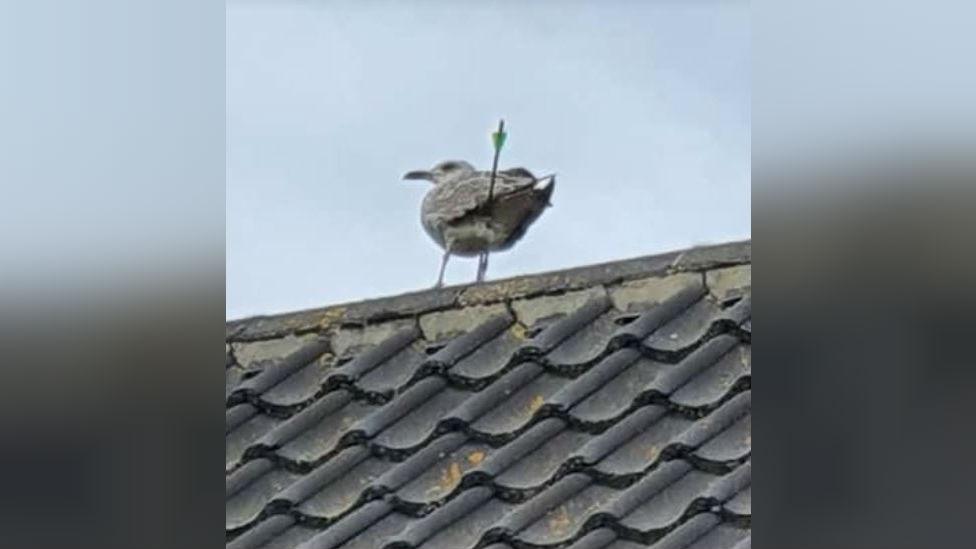Bin emptying times changed to deter resort seagulls
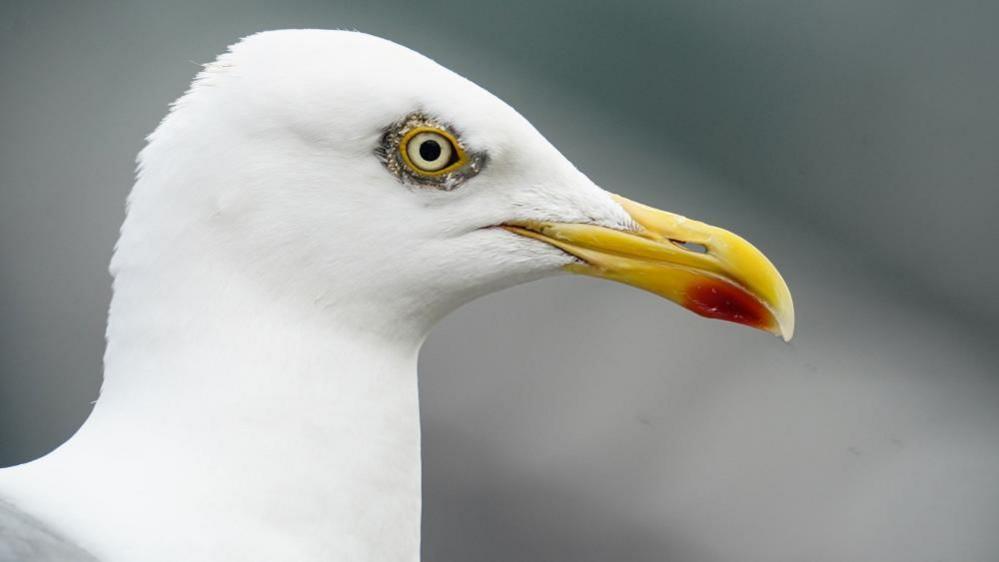
Bins on Hunstanton seafront are now emptied in the evening to make sure there is no food to be raided
- Published
Bins in a Norfolk seaside town are being emptied in the evening in an effort to stop seagulls stealing food.
The town council in Hunstanton said the action needed to be taken following an increase in incidents.
Visitors are also being urged to not feed the gulls due to reports of them swooping on people, including a recent incident where a sandwich was stolen from a child's hand.
Robert Corby, chair of the environmental committee on the council, said posters had been put up warning people against feeding gulls and traders had been told to pass on the message.

Robert Corby said changing the times bins were emptied removed a source of food
Mr Corby said the birds had become a problem.
"A small child had a sandwich snatched and we've had chips stolen from tourists as they've eaten," he said.
"It has happened because people have been feeding the seagulls with chips and the seagulls are losing their inhibitions.
"[The Borough Council of King's Lynn and West Norfolk] has been really good and they now empty the bins at the end of the evening, so there is no food waste in the bins overnight, so the seagulls don't enter the bins and eat the food that way."
He said when people fed the birds, they became more friendly and were more likely to pinch a chip or two.
"It's not really a case of the seagulls attacking, but the seagulls stealing some chips is causing distress."
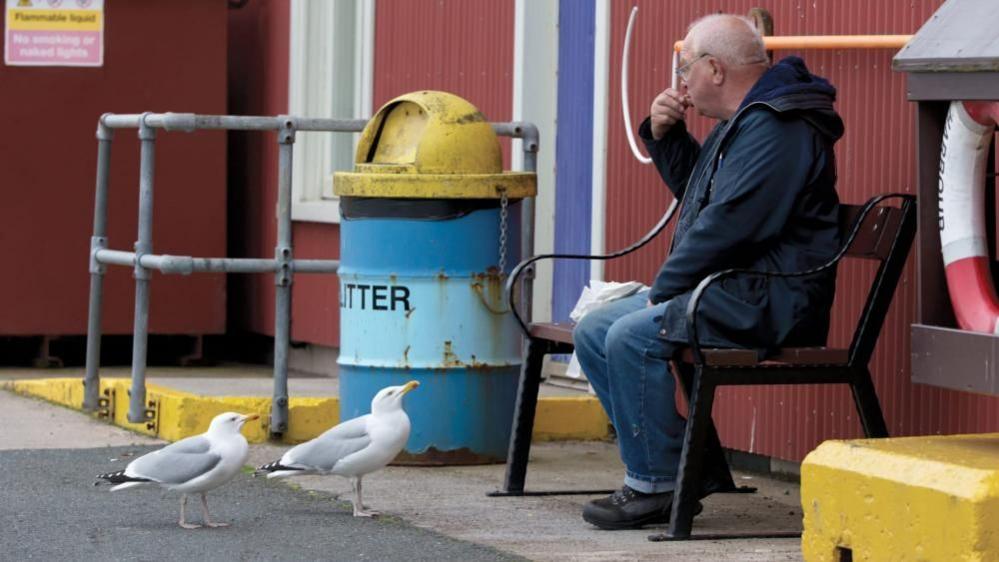
Two gulls wait in hope for a chip; meanwhile bins in Hunstanton are now empied in the evening to ensure there is no food for gulls
Dr Viola Ross-Smith, from the British Trust for Ornithology (BTO) based in Thetford, said the species was in global decline.
However, while proclaiming she was "very happy to fly the flag for gulls", she sympathised with visitors and the efforts of Hunstanton Town Council.
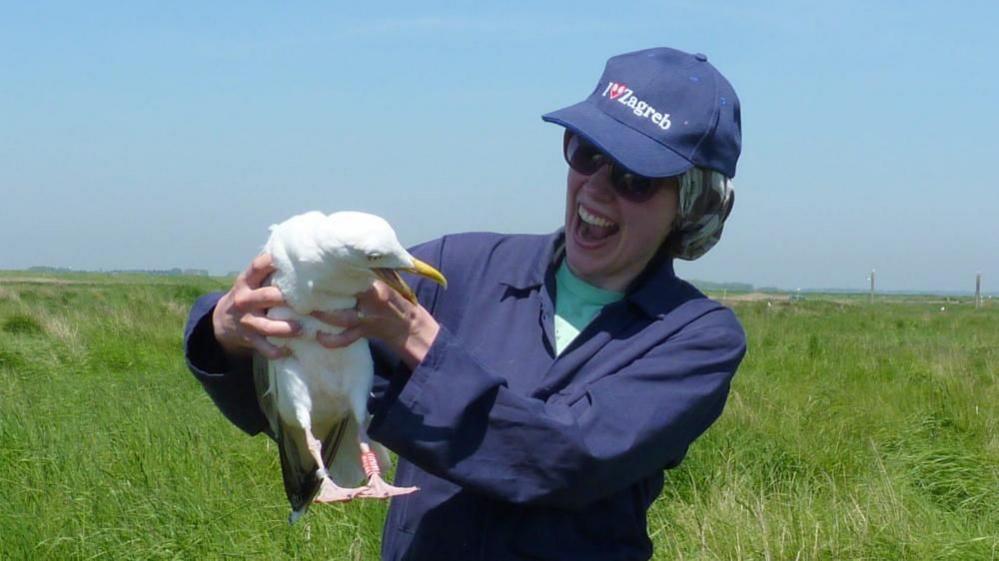
Dr Viola Ross-Smith, from the British Trust for Ornithology, helped ring herring gulls at Orford Ness, Suffolk
She said: "I was glad to hear that the councillor was highlighting when gulls are taking food they are not attacking, they are trying to feed.
"The two things often get confused because gulls are big birds, they are bold and brazen, and when they get close it can be quite intimidating.
"They are adapted to feed in flocks and take food from other animals. Certain individuals will learn to take food from humans and some of that is because we are not always good at tidying up after ourselves."
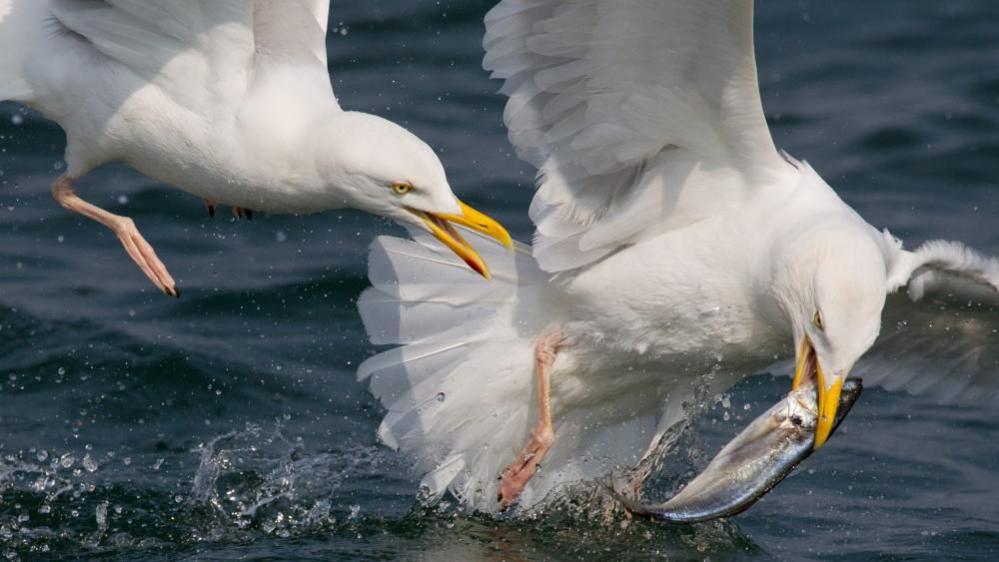
Dr Viola Ross-Smith said herring gulls had adapted to steal food from other animals
What is it like living among seagulls?
BBC reporter Andrew Turner, who lives in Great Yarmouth, said: "Twice this week I have been woken by the gulls' chorus at about five in the morning, as a group of the beautifully groomed birds circle overhead.
"My house is about a mile from the centre of Great Yarmouth where there is an abundance of food from visitors and local bins.
"Most mornings I walk to the beach with my dog for a morning swim before work, but the route has to be carefully considered.
"Some streets and alleyways have become no-go zones as gulls swoop and dive-bomb. They see my dog as more of a threat than me, and if he strays too far from me they take their chance; swooping in from behind so he doesn't see them coming.
"But they are remarkable birds. I once took lunch - a box of salad and a bag of chicken wings – while sitting on the harbour wall in Gorleston.
"Throwing chicken bones high into the air, the gulls would fight mid-flight and catch them on the wing.
"Throw a piece of cucumber, they don't even attempt it.
"They make us hate them, but we ought to love them. They're a species in global decline, even if they appear to be doing well where we live.
"They're incredibly clever, inventive and ever adapting – most likely because humans have changed their world."
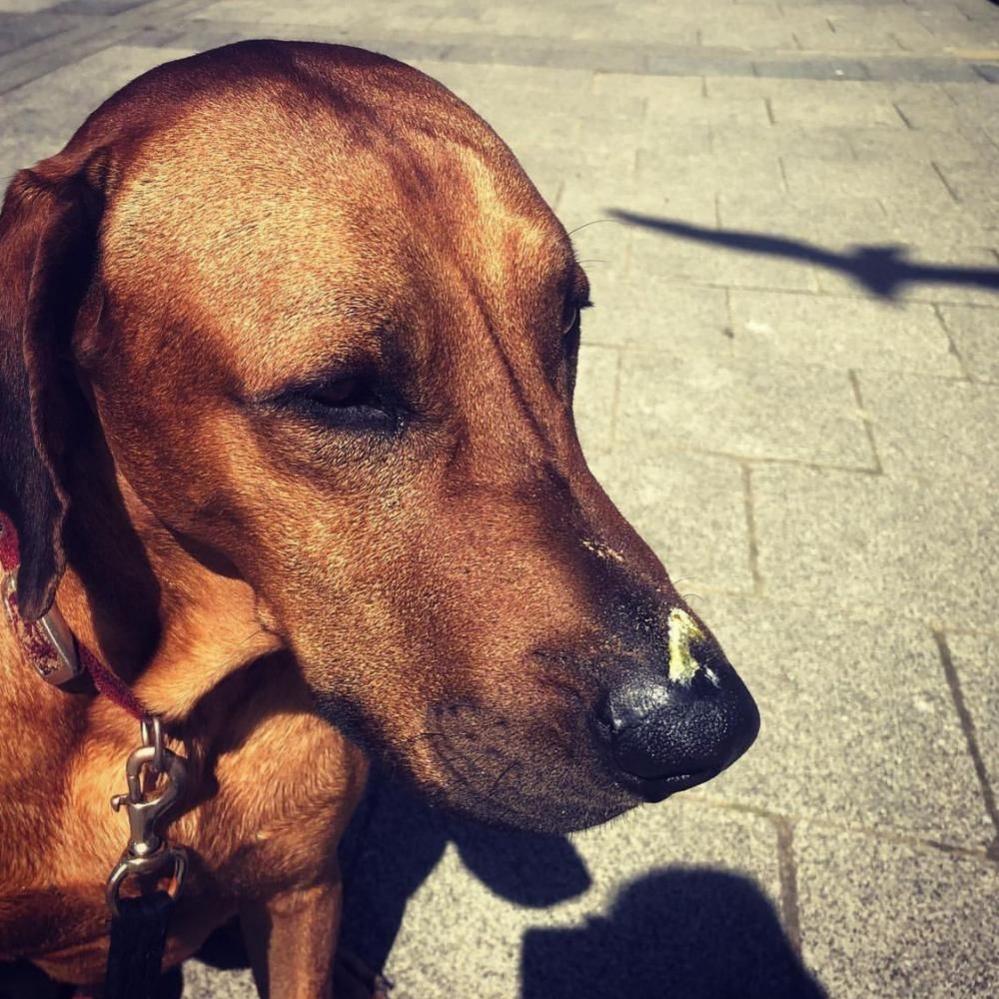
Andrew Turner's dog was once dive-bombed and left with a dirty protest on his snout
Follow Norfolk news on BBC Sounds, Facebook, external, Instagram, external and X, external.
Related topics
You may also be interested in
- Published31 March 2024
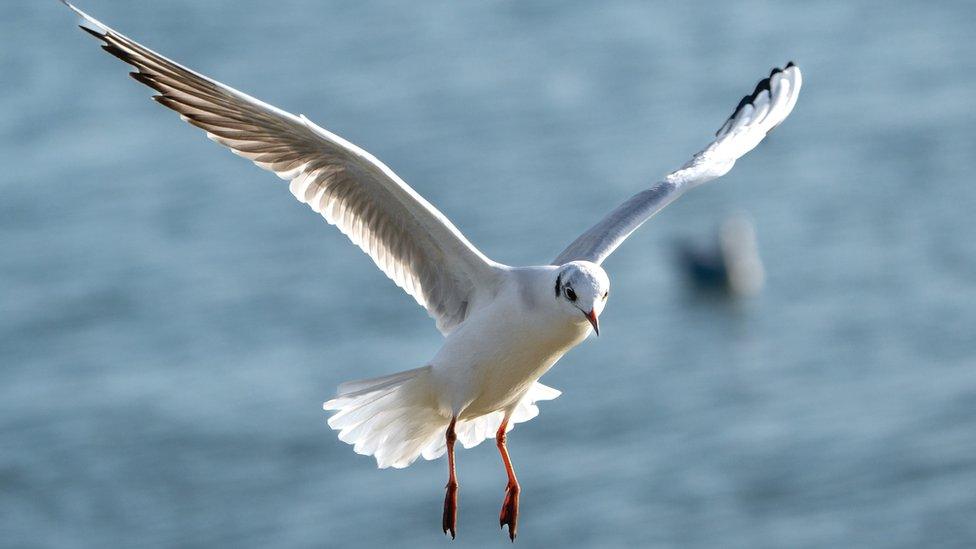
- Published23 July 2020
